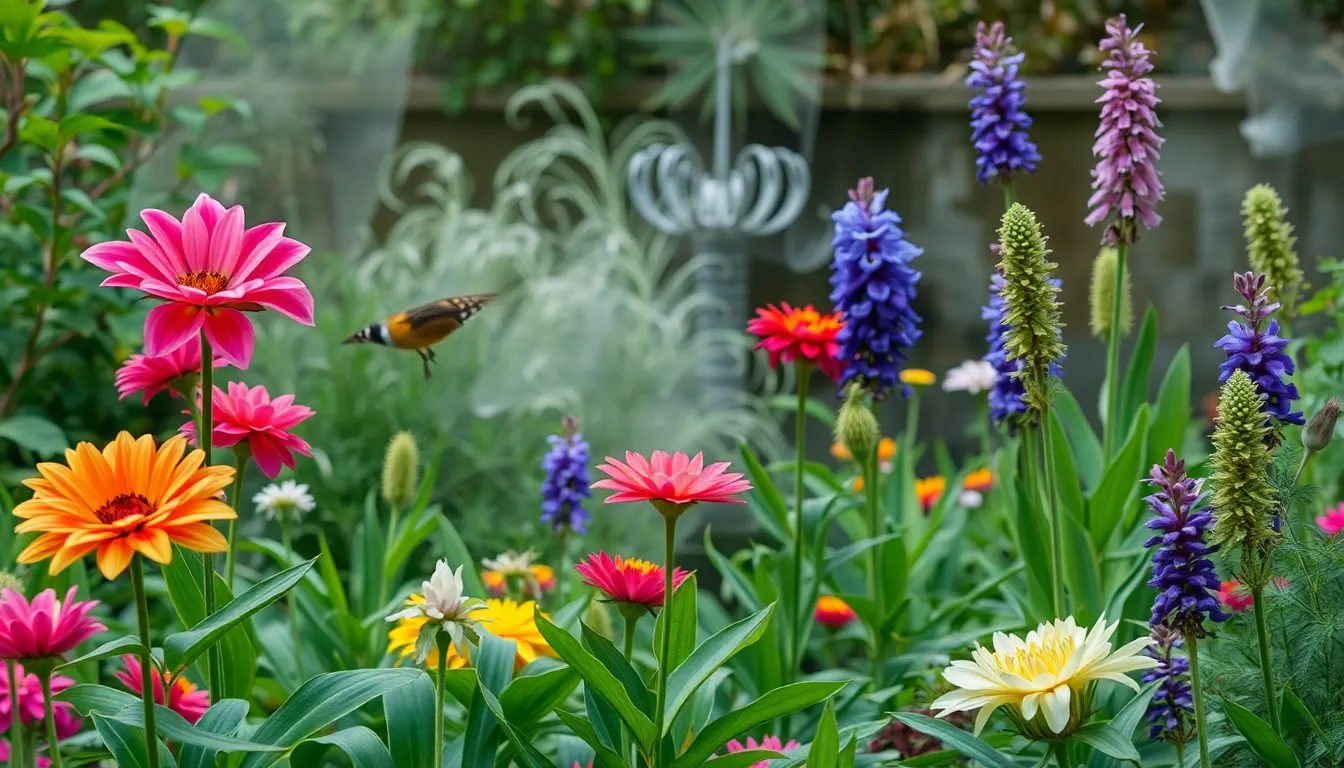Garden Myths: What Every Green Thumb Should Know
I. Introduction to Gardening Myths
Gardening is a rewarding hobby, but it is also filled with a plethora of myths and misconceptions that can lead to poor practices and disappointing results. Gardening myths are commonly held beliefs that may sound plausible but are often misleading or outright false. Understanding these myths is crucial for any gardener aiming for a lush and productive garden.
Distinguishing fact from fiction is essential not only for effective gardening but also for sustainable practices. This article aims to debunk several common gardening myths, providing you with the knowledge to make informed decisions in your gardening endeavors.
In the following sections, we’ll explore various myths including watering habits, the use of coffee grounds, pest control practices, and more.
II. Myth #1: Watering Plants in the Evening is Best
Many gardeners believe that watering in the evening is the best practice because it allows plants to absorb moisture overnight. However, this myth can lead to problems.
Watering in the evening can create a damp environment that encourages fungal diseases and root rot, as the moisture doesn’t evaporate quickly. Instead, the best practice for watering is during the early morning hours when temperatures are cooler, allowing water to penetrate the soil effectively without excessive evaporation.
- Water early in the morning for optimal absorption.
- Use mulch to retain moisture and reduce evaporation.
- Water deeply but infrequently to encourage deep root growth.
III. Myth #2: Coffee Grounds Are a Miracle Fertilizer
It’s widely believed that coffee grounds are a universal solution for fertilization, thanks to their popularity in gardening circles. While coffee grounds do have some benefits, they are not the miracle fertilizer they are often touted to be.
Coffee grounds contain nitrogen, but they are also acidic, which can affect soil pH. Over-relying on coffee grounds can lead to nutrient imbalances. To use coffee grounds effectively, consider the following:
- Mix coffee grounds with compost to balance nutrients.
- Use them sparingly in the garden to avoid acidity issues.
- Incorporate them into soil amendments rather than using them alone.
IV. Myth #3: You Should Always Use Chemical Pesticides for Pest Control
The belief that chemical pesticides are the only effective means of pest control has been perpetuated for decades. However, this approach comes with significant risks, including environmental harm and health concerns.
Instead of defaulting to chemical pesticides, consider alternative pest control methods. Here are some options:
- Utilize organic solutions such as neem oil or insecticidal soap.
- Implement companion planting to naturally deter pests.
- Encourage beneficial insects like ladybugs and lacewings.
V. Myth #4: It’s Better to Over-Fertilize Than Under-Fertilize
Many gardeners think that more fertilizer equals better plant growth. This myth can lead to detrimental effects on plants and soil health.
Over-fertilization can cause nutrient burn, damage plant roots, and lead to nutrient imbalances in the soil. It is important to understand the specific nutrient needs of your plants and fertilize accordingly. Here are some tips for proper fertilization:
- Conduct a soil test to determine nutrient levels.
- Follow the recommended application rates for fertilizers.
- Use organic fertilizers to provide a slow release of nutrients.
VI. Myth #5: Pruning is Harmful to Plants
Many gardeners fear that pruning will damage their plants. However, when done correctly, pruning is beneficial and even necessary for plant health.
Pruning encourages new growth, removes dead or diseased branches, and helps maintain the desired shape of the plant. To prune effectively, consider these guidelines:
- Use sharp, clean tools to make clean cuts.
- Prune during the appropriate season for each plant type.
- Remove no more than one-third of the plant at a time.
VII. Myth #6: All Garden Weeds Should be Removed Immediately
While many gardeners view weeds as a nuisance, not all weeds are harmful. Some can actually benefit your garden ecosystem.
Certain weeds can attract beneficial insects, improve soil structure, and even act as cover crops. Here are some strategies for managing weeds:
- Identify beneficial weeds and decide if they should stay.
- Practice mulching to suppress unwanted weeds while promoting healthy soil.
- Regularly monitor your garden to manage weeds without total removal.
VIII. Myth #7: You Can Plant Anything in Any Soil
There is a common belief that soil is interchangeable, and you can plant any type of plant in any soil. This is far from the truth.
Different plants have specific soil requirements in terms of pH, drainage, and nutrient content. Conducting a soil test is vital to understand what amendments may be needed. Here are recommendations for selecting plants based on soil type:
- Choose plants that are suited to the existing soil conditions.
- Amend soil based on test results to improve its quality.
- Research native plants that thrive in your local soil type.
IX. Myth #8: Scented Plants Attract More Bugs
Many gardeners worry that planting scented flowers will attract unwanted pests. However, the relationship between scents and bugs is more complex.
While some scents can attract pests, many scented plants also attract beneficial insects that can help control pest populations. Here’s how you can leverage scents for pest management:
- Plant fragrant herbs like basil and mint to deter certain pests.
- Use flowers that attract pollinators to create a balanced ecosystem.
- Understand the specific scents that repel pests to choose the right plants.
X. Conclusion: Cultivating a Knowledgeable Gardening Mindset
Throughout this article, we have debunked several common gardening myths that can mislead gardeners. From watering practices to pest control methods, understanding these myths is crucial for cultivating a successful garden.
As you continue your gardening journey, remember to research and stay informed about best practices. Engaging with fellow gardeners can also provide valuable insights. We encourage you to share your own experiences and any myths you’ve encountered in your gardening endeavors.




